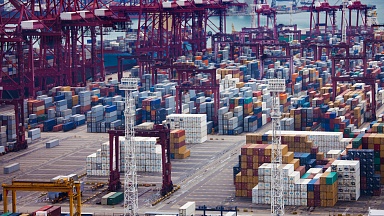The agreement was first concluded in November 2019 and should bring reciprocal trade benefits as well as introducing consumers to guaranteed, quality products on both sides. It reflects the commitment of the EU and China to deliver on their commitment taken at previous EU-China Summits to adhere to international rules as a basis for trade relations.
Proof of commitment
Agriculture and rural development Commissioner Janusz Wojciechowski said: «I am proud to see this agreement getting one step closer to its entry into force, reflecting our commitment to work closely with our global trading partners such as China.
«European Geographical Indications products are renowned for their quality and diversity, it is important to protect them at an EU and global level to ensure their authenticity and preserve their reputation. This agreement will contribute to do this, while also strengthening our trading relationship, benefitting our agri-food sector and consumers on both sides.»
Type of goods
China is the second destination of EU exports of products protected as GI’s, accounting for 9 per cent by value. These include wines, agri-food products and spirit drinks. Positively, these are the types of products that can now be shipped to China by rail, since Russia lifted the ban on transit transportation of sanctioned goods.
In addition, European consumers will be able to discover genuine Chinese specialties thanks to the agreement. The EU list of GIs to be protected in China includes iconic GI products such as Cava, Champagne, Feta, Irish whiskey, Münchener Bier, Ouzo, Polska Wódka, Porto, Prosciutto di Parma and Queso Manchego. Among the Chinese GI products, the list includes for example Pixian Dou Ban (Pixian Bean Paste), Anji Bai Cha (Anji White Tea), Panjin Da Mi (Panjin rice) and Anqiu Da Jiang (Anqiu Ginger).
Timeframe
Following the signature of the agreement and the European Parliament consent, it will officially be adopted by the Council. The agreement is expected to enter into force at the beginning of 2021.
Within four years after its entry into force, the scope of the agreement will expand to cover additional 175 GI names from both sides. These names will have to follow the same approval procedure as the 100 names already covered by the agreement (i.e. assessment and publication for comments).




